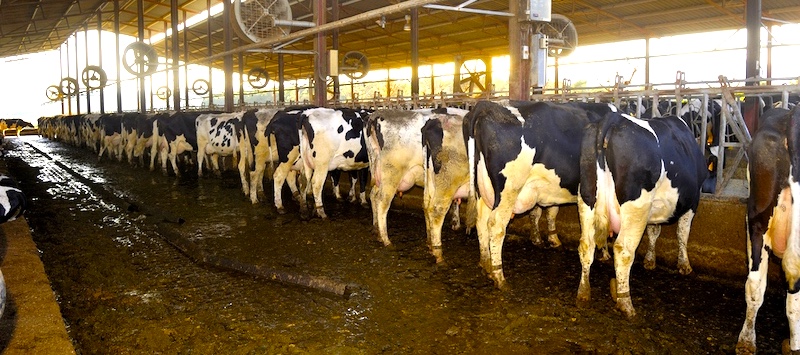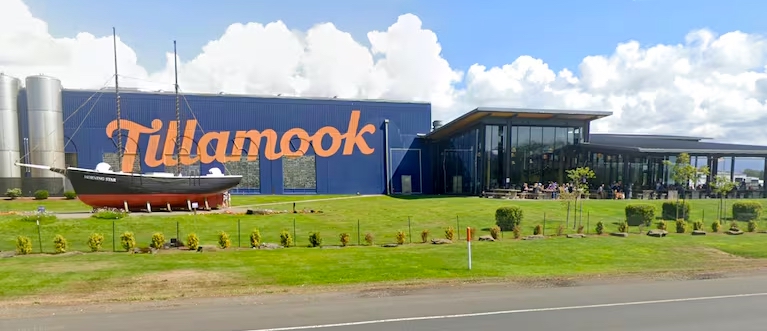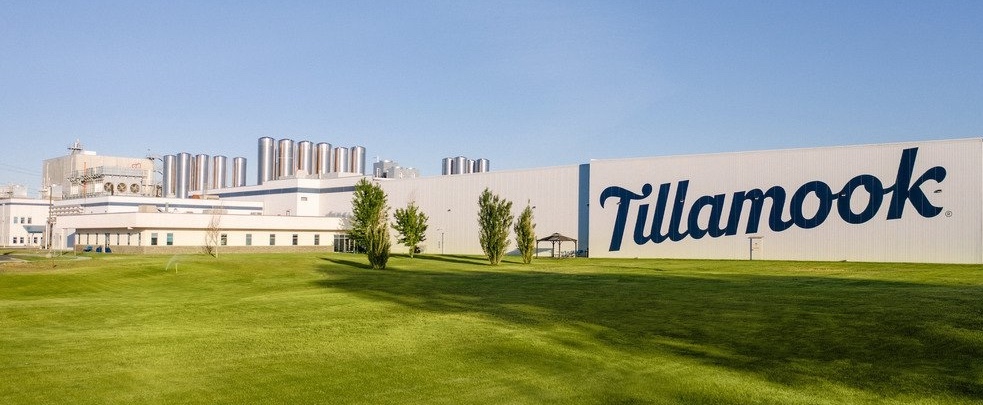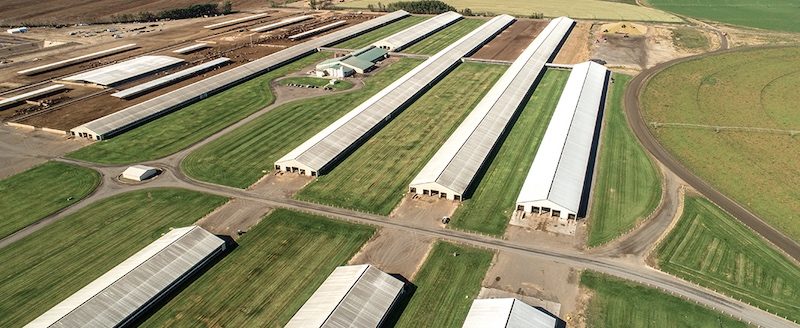
False Advertising Suit Against Tillamook May Proceed, Oregon Supreme Court Says
Six years ago a group of consumers filed suit against the Tillamook County Creamery Association (TCCA), claiming its advertising misleads the public into believing its milk comes from cows munching on coastal pastures, when in truth the vast majority of the milk used in its famous cheese, yogurt, ice cream and butter comes from cows fed on grain, living on concrete and in dirt feedlots in factory farms in Eastern Oregon (bottom photo).
At that time I wrote that, according to the Animal Legal Defense Fund (ALDF), a legal advocacy organization that filed the suit on behalf of the consumers, the TCCA's "heavily advertised 'co-op' of small family farms in Tillamook County represent just a tiny proportion of the company’s production. In reality, Tillamook sources up to 80 percent of its milk from the largest dairy feedlot in the United States. Located in the desert of eastern Oregon, the facility that provides the majority of Tillamook’s milk keeps 32,000 dairy cows (and more than 70,000 cows total) in inhumane, industrialized conditions."
Additionally, according to the Capital Press, by September of 2024 the TCCA was doing more than $1.2 billion in sales….which begs the question of how the 60 remaining TCCA co-op members could possibly produce that much milk. But I digress.

while the reality (top photo) is very different.
The claims in the suit allege that the TCCA's advertising encourages shoppers to "Say Goodbye to Big Food," depicting cows grazing on pristine coastal grass under sunny blue skies, when in reality, the lawsuit claims, its industrial practices are the epitome of "Big Food." The lawsuit, originally filed in Multnomah County Circuit Court, said that "consumers increasingly seek out and are willing to pay more for products that they perceive as being locally and ethically sourced—better for the environment [and] more humane.
Tillamook has projected such ethical sourcing as its company ethos, deliberately crafting its marketing messages to attract these consumers, who believe they are getting such responsibly sourced products when they buy Tillamook cheese and ice cream. As the company says, "Tillamook cheddar cheese is made with four ingredients, patience, and old-fashioned farmer values in Tillamook, Oregon."

where it processes the milk from a giant industrial factory farm nearby.
The pushback to the lawsuit from Tillamook was immediate. In the circuit court trial, the TCCA argued that the consumers in the class action suit couldn't show they were misled and therefore had no standing to sue. The court agreed, and in an appeals trial the Oregon Court of Appeals affirmed the lower court's decision. The ALDF and its lawyers at Sugerman Dahab, and Tim Quinelle, PC, then appealed to the Oregon Supreme Court, which last week reversed the appellate court's decision, allowing the case to proceed.
“The trial court and the court of appeals had previously ruled that the case couldn’t go forward because in those courts’ view the consumer protection law did not provide an avenue for relief,” Dahab said in a statement, calling the reversal a big win for Oregon consumers. “Cases like this allow consumers to hold businesses accountable to holding up their end of the deal.”

Again, lots of grass, no cows (cows are visible in barren feedlots in upper left).
In the same statement, ALDF's Amanda Howell, said, “Tillamook sells its dairy products by selling a fairy tale—that you can be a billion-dollar company and still source from small-scale farms where cows receive individualized care and access to pasture. This is completely at odds with the level and magnitude of suffering that takes place at industrialized dairy facilities.”
Or as my friend, organic dairy farmer Jon Bansen said after a tour of one of the industrial factory farms that Tillamook sources its milk from, "The scale is impressive, but the biology is horrifying."
Read my original post from 2017, "Why I'm Quitting Tillamook Cheese" and my article for Civil Eats "Big Milk, Big Issues for Local Communities."